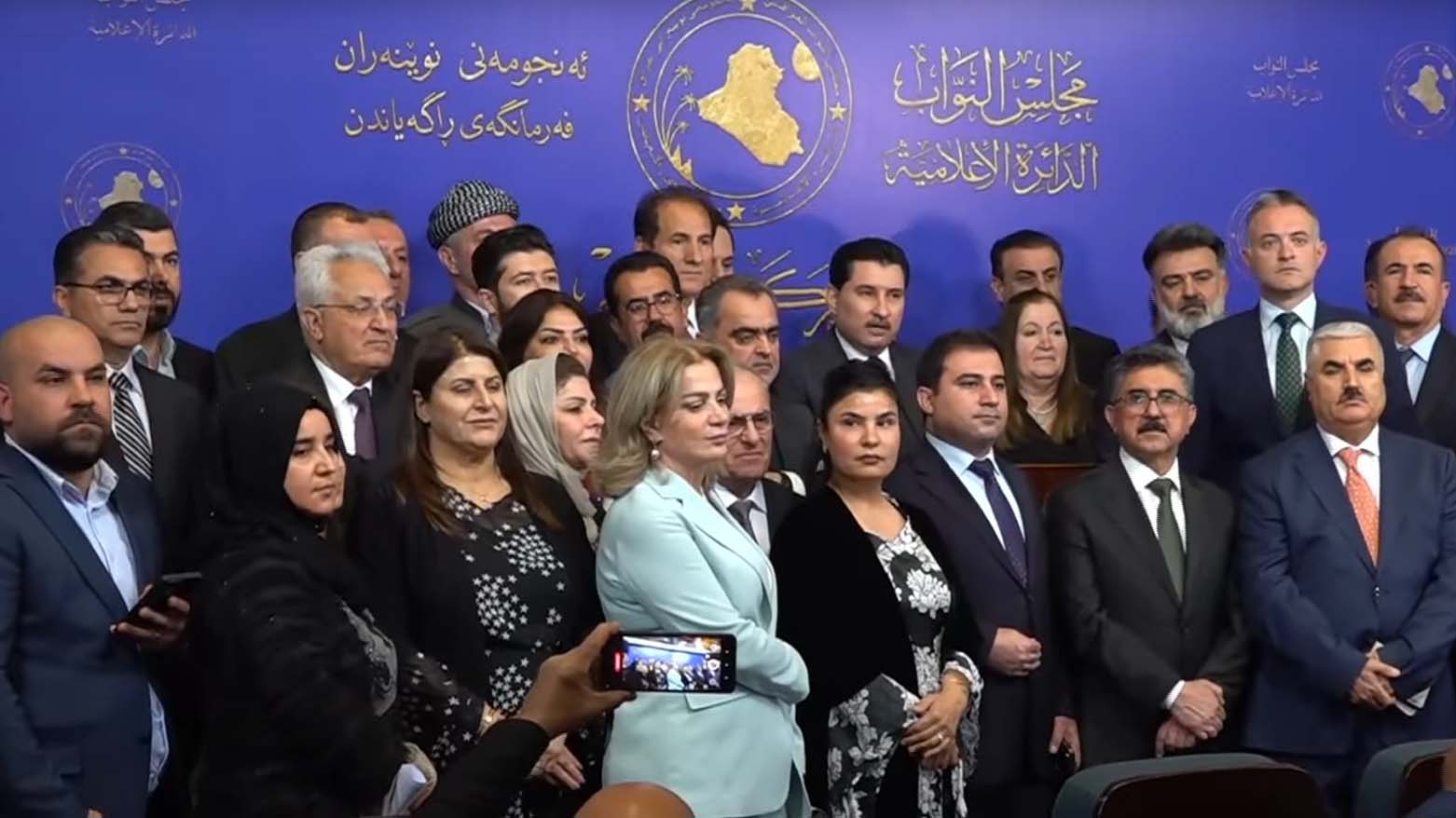‘A Moral Duty Fulfilled’: Deputy Speaker Hails Approval of Halabja Province Bill
“There were serious attempts by some political blocs to delay or derail the vote by tying it to the provincialization of Tal Afar district,” he revealed.

By Kamaran Aziz
ERBIL (Kurdistan24) — In the wake of the historic parliamentary vote that granted Halabja full provincial status, Deputy Speaker of the Iraqi Parliament, Dr. Shakhawan Abdullah, delivered a powerful statement underscoring the moral and symbolic significance of the decision.
Speaking in a press conference on Monday, Abdullah expressed deep gratitude to all Kurdish factions for their unity and efforts in securing the bill's passage, calling it “the least loyalty we can show to the victims of Halabja.” His remarks came hours after the Iraqi Parliament, with a clear majority, voted to officially recognize Halabja as Iraq’s 19th province—ending years of legislative delays and political wrangling.
The move came after years of advocacy and political maneuvering, with the bill first introduced in the Iraqi Parliament in 2023. Despite repeated postponements since March due to a lack of quorum, Monday’s session finally brought the long-debated issue to a conclusion. At precisely 3:15 PM, the Iraqi Parliament convened with 178 members present. The vote on the Halabja bill was the first item on the six-point agenda, and it passed with widespread support from Kurdish, Shiite, and Sunni factions.
Shwan Kalari, a member of the Iraqi Council of Representatives, told Kurdistan24, “Today is a historic day. We did not read all the statements about the Anfal commemoration, just to avoid creating problems and excuses.” He added that Halabja, like Iraq’s other 18 provinces, would now benefit from full provincial rights and allocations within the framework of the federal government.
Sipan Sherwani, another member of the Iraqi Parliament, extended heartfelt congratulations: “I congratulate President Barzani on Halabja becoming the 19th province of Iraq, as he was the first person to propose making Halabja a province to serve its people. I also congratulate each and every family of the Halabja martyrs and the people of Halabja.”
Sherwani highlighted the collaborative effort behind the passage of the bill, emphasizing the roles played by key parliamentary figures: “In this parliamentary session, we have been working on this project from the beginning. Many obstacles were created, but thanks to the efforts of our friends, the bill was approved—especially Dr. Shakhawan Abdullah, Deputy Speaker of the Iraqi Parliament, along with Mohsen Mandalawi, First Deputy Speaker of Parliament, and all Kurdish factions and other Shiite and Sunni factions. Thanks to God, the bill to make Halabja a province was approved.”
According to MP Chro Sharif, coordination between the KDP and PUK leaderships and other Iraqi political blocs had been instrumental in ensuring the vote would not face further delay. “Political agreements with Shiite and Sunni parties were reached to support the Halabja province bill, and they pledged to do so,” he told Kurdistan24.
The path to provincial recognition began with the bill’s first reading on April 2, 2023, followed by a second reading on May 4, 2023. The newly established Halabja Province comprises the central district of Halabja and the towns of Khurmal, Byara, Sirwan, and Bamo. It shares an 18-kilometer border with Eastern Kurdistan through the Shushmi-Tawela and Pshta border crossings.
Halabja’s recognition as a province carries profound historical and emotional weight. Known worldwide as the site of a devastating chemical weapons attack in 1988, carried out by Saddam Hussein’s regime during the Anfal campaign, Halabja lost approximately 5,000 civilians in one of the worst atrocities of the modern Middle East. For decades, Halabja has symbolized Kurdish suffering and resilience.
Abdullah, a key figure in the campaign to push the bill forward, emphasized that passing the law was not only a political act but a moral imperative. “The excuses of some Iraqi factions do not align with the level of sacrifice of Halabja's victims,” he said. “This issue is above politics. It is a moral issue, and passing the bill is the minimum level of loyalty to those who lost their lives.”
He acknowledged that not all factions welcomed the vote. “There were serious attempts by some political blocs to delay or derail the vote by tying it to the provincialization of Tal Afar district,” he revealed. “But thanks to persistent efforts by the Kurdish blocs and our allies, these obstacles were removed, and the bill passed very legally.”
Abdullah also criticized certain political parties that had promised support but later attempted to stall the process by presenting last-minute objections during the parliamentary session. “They tried to use various excuses to disrupt the session, despite having previously pledged to vote for the bill,” he said.
Despite these challenges, the vote went ahead as planned during Monday’s session. The outcome was a clear expression of parliamentary will—and a long-awaited victory for the people of Halabja.
For many Kurds, the parliamentary decision represents more than administrative recognition—it is a belated but vital gesture of respect, remembrance, and justice. With provincial status now granted, Halabja will benefit from direct federal budgeting, administrative autonomy, and expanded political representation, marking a new chapter in its reconstruction and development.
“The suffering of Halabja can never be erased,” Abdullah concluded. “But today, we took one step closer to honoring that suffering through action, not just words.”
As Kurdistan24 continues its coverage from Baghdad and Halabja, reactions are pouring in from across the political spectrum, with leaders, survivors, and citizens celebrating what many see as a long-overdue recognition of the city’s sacrifice and resilience.
